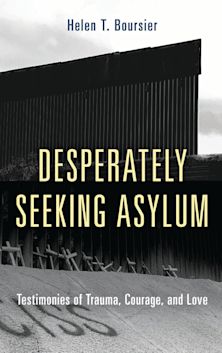Life Beyond the Tohoku Disasters
Autonomy and Adaptability in Coastal Japan
Life Beyond the Tohoku Disasters
Autonomy and Adaptability in Coastal Japan
This product is usually dispatched within 2-4 weeks
- Delivery and returns info
-
Flat rate of $10.00 for shipping anywhere in Australia
Description
This book explores, in rich, ethnographic detail, the lives of a group of Japanese fishers and community residents in coastal Japan in the aftermath of the tsunami generated from the 2011 Great East Japan Earthquake. Focused on one town in Miyagi Prefecture near the epicenter of the 2011 quake, the text provides a singularly unique opportunity to hear, in their own voices, individuals’ reflections and experiences on life after the disasters while also drawing upon anthropological fieldwork data from many of the same individuals 10 years prior to the disaster.
Alyne E. Delaney skillfully contextualizes local culture and fishing livelihoods and lays out key impacts of disaster reconstruction policies on local society, illustrating the importance of people’s attachment to their places and seascapes, their connections with one another and shared traditions, and their sea-connected working ways of life.
Delaney reveals not only the heartbreak of the disasters and the strain placed on individuals and coastal communities when national policymakers fail to use good governance when rebuilding, but also provides insights into how some have managed to recover and learn the wisdom of knowing what real happiness is, offering readers an enlightening discourse of the potency of the local cultural traits of autonomy and adaptability.
Table of Contents
List of Tables and Figures
Acknowledgments
Introduction
Part I: Life Before
Chapter 1: Scenes, Seascapes, and Disasters
Chapter 2: Anchoring Coastal Ways of Life
Chapter 3: Connecting Coastal Ways of Life
Part II: The Disasters of 3.11
Chapter 4: Remembering Ano Hi, “That Day”
Part III: Resilience: Life a Decade later
Chapter 5: Rebuilding Lives
Chapter 6: Policy Impacts on Working Lives
Chapter 7: Knowing What Happiness Is
Glossary
Bibliography
Product details
| Published | 15 May 2024 |
|---|---|
| Format | Hardback |
| Edition | 1st |
| Extent | 212 |
| ISBN | 9781793616555 |
| Imprint | Lexington Books |
| Illustrations | 17 BW Illustrations, 2 Tables |
| Dimensions | 237 x 161 mm |
| Publisher | Bloomsbury Publishing |
Reviews

ONLINE RESOURCES
Bloomsbury Collections
This book is available on Bloomsbury Collections where your library has access.

































